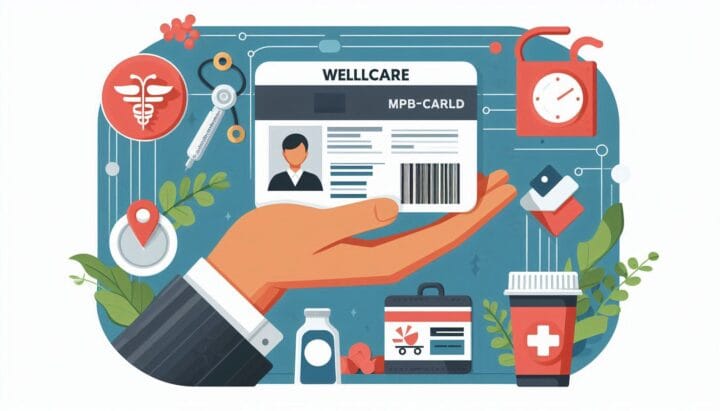Medicare Part C Eligibility: Your Guide to Advantage Plans
Table of Contents

Medicare Part C Eligibility: Your Guide to Advantage Plans
Are you swimming in a sea of Medicare options, feeling like you need a life preserver just to stay afloat? You’re not alone. Medicare Part C eligibility can feel like a puzzle with too many pieces. But don’t worry, I’m here to help you put it all together. Let’s dive into the world of Medicare Advantage and figure out if you’re eligible to ride this particular healthcare wave.
What’s the Deal with Medicare Part C?
Before we jump into eligibility, let’s talk about what Medicare Part C actually is. Think of it as the cool cousin of Original Medicare – it’s got all the basics covered, plus some extra perks that make it stand out at the family reunion.
Medicare Part C, also known as Medicare Advantage, is like a one-stop shop for your Medicare needs. It bundles together:
- Medicare Part A (hospital insurance)
- Medicare Part B (medical insurance)
- Often, Medicare Part D (prescription drug coverage)
- Sometimes, extra goodies like dental, vision, and hearing coverage
It’s like getting a combo meal at your favorite fast-food joint – all the essentials, plus a side of fries and a drink. But instead of fries, you might get dental coverage, and instead of a drink, you could get vision care. Sounds pretty sweet, right?
But here’s the catch – not everyone can order from this menu. You’ve got to meet certain criteria to be eligible for Medicare Part C. So, let’s break down who gets to join this exclusive Medicare club.
The Basics: Who Can Get Medicare Part C?
Alright, let’s get down to brass tacks. To be eligible for Medicare Part C, you need to meet a few basic requirements. Think of these as the bouncer at the door of the Medicare Advantage club:
- You must be enrolled in Original Medicare (Parts A and B): This is like having your ID checked at the door. No Original Medicare? No entry.
- You must live in the service area of the Medicare Advantage plan you want to join: It’s like trying to order pizza delivery – if you’re outside their delivery zone, you’re out of luck.
- You must be a U.S. citizen or lawfully present in the United States: Uncle Sam wants to make sure you’re part of the family before letting you in on this deal.
Now, if you’re thinking, “Great, I’ve got all that covered!” – not so fast. There’s more to Medicare Part C eligibility than just these basics. Let’s dig a little deeper.
Age Matters: The 65 Club and Beyond
When it comes to Medicare Part C eligibility, age is more than just a number. It’s like the VIP line at a club – hit 65, and you’re in. But what if you’re not quite there yet? Don’t worry, there are still ways to get on the guest list.
The 65 and Up Crowd
If you’re 65 or older, congratulations! You’ve hit the Medicare jackpot. You’re eligible for Medicare Part C as long as you:
- Are a U.S. citizen or have been a legal permanent resident for at least 5 years
- Have enrolled in Medicare Parts A and B
It’s like turning 21 and finally being able to order that fancy cocktail – you’ve been waiting for this moment, and now it’s here.
Under 65: The Exceptions to the Rule
Not quite 65 yet? Don’t despair. You might still be eligible for Medicare Part C if:
- You have a disability: If you’ve been receiving Social Security Disability Insurance (SSDI) for 24 months, you’re in. It’s like getting a fast pass to the Medicare Advantage ride.
- You have End-Stage Renal Disease (ESRD): As of 2021, people with ESRD can join most Medicare Advantage plans. It’s like the bouncer finally letting you into the club after years of standing outside.
- You have Amyotrophic Lateral Sclerosis (ALS): If you have ALS, also known as Lou Gehrig’s disease, you’re eligible for Medicare as soon as your SSDI benefits begin. No waiting period required – it’s like having a VIP pass.
Remember, even if you qualify under these exceptions, you still need to enroll in Original Medicare first. It’s like needing a base ticket before you can upgrade to the VIP package.
Timing is Everything: When Can You Enroll?
Now that we know who can get Medicare Part C, let’s talk about when you can get it. Timing in Medicare is like trying to catch a train – miss your window, and you might be left standing on the platform.
Initial Enrollment Period: Your First Chance to Hop Aboard
Your Initial Enrollment Period (IEP) is like a 7-month window of opportunity that opens around your 65th birthday. It includes:
- The 3 months before your birthday month
- Your birthday month
- The 3 months after your birthday month
This is your first chance to sign up for Medicare Part C. It’s like having a golden ticket – don’t let it slip away!
Annual Enrollment Period: The Yearly Do-Over
Missed your IEP? No worries. The Annual Enrollment Period (AEP) is like an annual sale at your favorite store. It runs from October 15 to December 7 each year. During this time, you can:
- Switch from Original Medicare to Medicare Advantage
- Switch from one Medicare Advantage plan to another
- Switch back to Original Medicare from Medicare Advantage
It’s like a game of musical chairs, but with health insurance plans.
Special Enrollment Periods: Life Happens
Sometimes, life throws you a curveball. That’s where Special Enrollment Periods (SEPs) come in. You might qualify for an SEP if:
- You move out of your plan’s service area
- You lose other health coverage
- Your plan changes its contract with Medicare
SEPs are like a “Get Out of Jail Free” card in Monopoly – they give you a chance to make changes when life doesn’t play by the rules.
The Fine Print: What Might Disqualify You?
Now, let’s talk about what might keep you out of the Medicare Part C club. It’s not a long list, but it’s important to know.
- You don’t have Parts A and B: This is non-negotiable. It’s like trying to build a house without a foundation – it just won’t work.
- You live outside the plan’s service area: Medicare Advantage plans are like cell phone coverage – they only work in certain areas.
- You have End-Stage Renal Disease (ESRD): While this used to be a deal-breaker, as of 2021, most people with ESRD can join Medicare Advantage plans. It’s like the club finally changing its “No ESRD” policy.
- You’re not a U.S. citizen or lawfully present: Uncle Sam is pretty strict about this one. It’s like trying to use Monopoly money at a real store – it just won’t fly.
Remember, even if you’re eligible, you still need to enroll during the right time period. It’s like having a ticket to a concert – if you show up after the doors close, you’re out of luck.
Choosing Your Plan: Not All Medicare Advantage is Created Equal
So, you’ve checked all the boxes and you’re eligible for Medicare Part C. Great! But now comes the fun part – choosing a plan. It’s like being a kid in a candy store, except instead of candy, you’re choosing health insurance. Still exciting, right?
Types of Medicare Advantage Plans
There are several types of Medicare Advantage plans, each with its own rules and benefits:
- Health Maintenance Organization (HMO) Plans: These are like the strict parents of the Medicare Advantage world. You usually need to stay in-network and get referrals for specialists.
- Preferred Provider Organization (PPO) Plans: These are more like the cool aunt or uncle. You have more flexibility to see out-of-network providers, but it’ll cost you more.
- Private Fee-for-Service (PFFS) Plans: These plans are like freelancers. They decide how much they’ll pay for services, and you can see any provider who agrees to the plan’s terms.
- Special Needs Plans (SNPs): These are like custom-tailored suits. They’re designed for people with specific diseases or characteristics.
- Medicare Savings Account (MSA) Plans: These are like a health savings account combined with a high-deductible health plan. It’s for the financially savvy Medicare beneficiary.
Choosing between these plans is like picking your character in a video game. Each has its own strengths and weaknesses, and the best choice depends on your specific needs and situation.
Factors to Consider When Choosing a Plan
When you’re shopping for a Medicare Advantage plan, keep these factors in mind:
- Cost: This includes premiums, deductibles, and copayments. It’s like budgeting for a vacation – you need to consider all the expenses, not just the price of the ticket.
- Coverage: What services are covered? Does the plan include prescription drug coverage? It’s like checking the amenities when booking a hotel room.
- Network: Can you see your current doctors? Are the plan’s in-network providers convenient for you? This is like choosing a gym – location matters.
- Ratings: Check the plan’s star rating from Medicare. It’s like reading reviews before trying a new restaurant.
- Extra Benefits: Does the plan offer dental, vision, or hearing coverage? These extras are like the cherry on top of your Medicare sundae.
Remember, the “best” plan is the one that fits your specific needs and budget. It’s like finding the perfect pair of shoes – what works for someone else might not work for you.
Conclusion: Your Medicare Part C Journey Starts Here
Medicare Part C eligibility might seem like a maze, but with the right information, you can navigate it like a pro. Remember, to be eligible for Medicare Advantage, you need to:
- Be enrolled in Original Medicare (Parts A and B)
- Live in the plan’s service area
- Be a U.S. citizen or lawfully present in the United States
And don’t forget about those important enrollment periods – timing is key!
Now that you’re armed with this knowledge, you’re ready to explore your Medicare Advantage options. It’s like having a map and compass for your Medicare journey. So go forth, compare plans, and find the coverage that’s right for you. Your future self (and your health) will thank you!
FAQs
- Can I enroll in Medicare Part C if I only have Medicare Part A?
No, you need to be enrolled in both Medicare Part A and Part B to be eligible for Medicare Part C. It’s like needing both a shirt and pants to complete your outfit – you can’t go out with just one! - If I’m eligible for Medicare due to disability, can I still get Medicare Part C?
Yes, if you’re under 65 and eligible for Medicare due to disability, you can enroll in Medicare Part C after you’ve had Medicare Part A and Part B for 24 months. It’s like waiting for a table at a popular restaurant – once your time comes up, you’re in! - Can I switch from Original Medicare to Medicare Part C at any time?
Generally, no. You typically need to wait for specific enrollment periods to switch, like the Annual Enrollment Period from October 15 to December 7. However, certain life events might qualify you for a Special Enrollment Period. It’s like trying to catch a train – you need to be at the station when it’s scheduled to arrive. - If I have employer-sponsored health insurance, can I still enroll in Medicare Part C?
You can, but it’s important to consider how it might affect your current coverage. Enrolling in Medicare Part C could cause you to lose your employer-sponsored coverage. It’s like trying to sit in two chairs at once – it’s possible, but it might not be comfortable or practical. - What happens if I enroll in Medicare Part C and then move out of the plan’s service area?
If you move out of your plan’s service area, you’ll qualify for a Special Enrollment Period. This allows you to either switch to a new Medicare Advantage plan in your new area or go back to Original Medicare. It’s like changing schools – when you move, you need to find a new place that fits your new location.













Post Comment